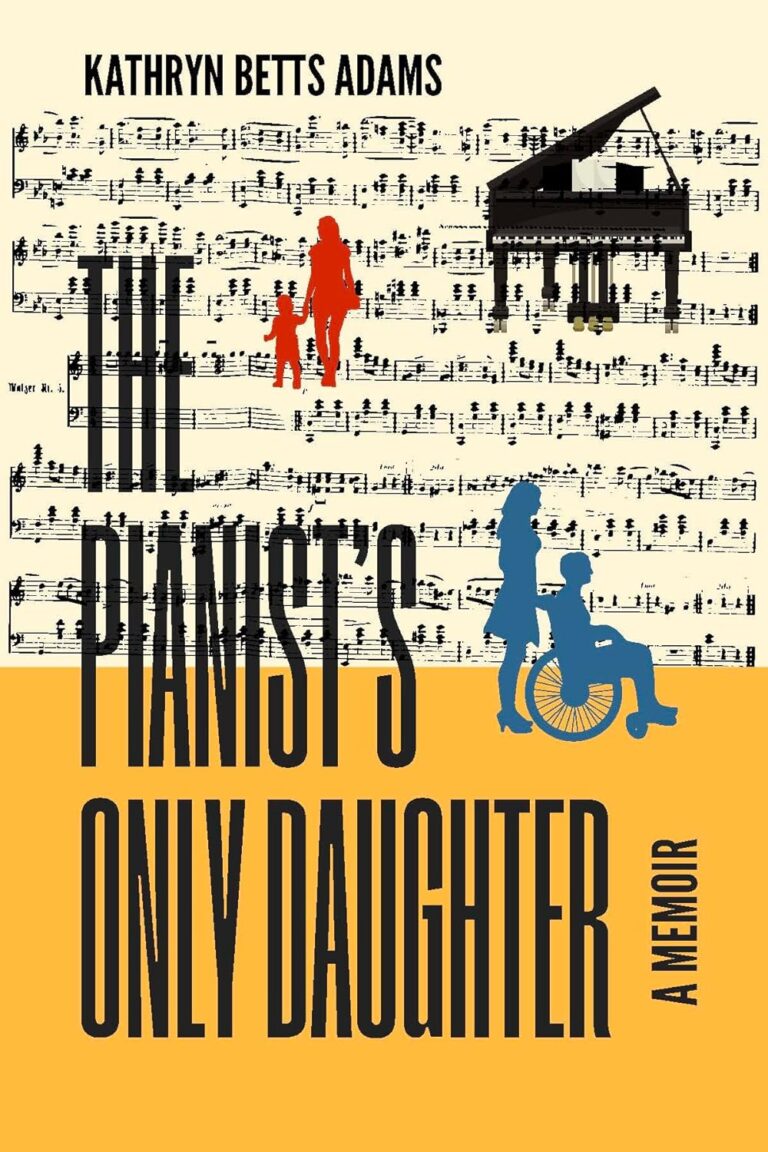The Pianist’s Only Daughter: A Memoir received a 4+ star review, making it an IndieReader Approved title.
Following find an interview with author Kathryn Betts Adams.
What is the name of the book and when was it published?
The Pianist’s Only Daughter: A Memoir, published Nov. 14, 2023
What’s the book’s first line?
Prelude (2019)
In the building’s hallway, I can already hear faint piano music.
What’s the book about? Give us the “pitch”.
The Pianist’s Only Daughter: A Memoiris a frank, humorous, and poignant exploration of aging in an aging expert’s own family. Kathryn Betts Adams was the only daughter of colorful and talented parents: her mother, an English scholar and poet, and her father, a concert pianist and music professor. Their dramatic emotional lives, marital instability, and eventual break-up provided the backdrop for her 1960s and ’70s youth.
Nearly thirty years after they were divorced, her newly single father and her never-remarried mother, by then diagnosed with Parkinson’s disease, have reconciled and decided to live together again. As her mother’s condition deteriorates, Kathryn has to step in to help manage her care. Despite her expertise as a gerontological social worker, she finds that old family dynamics and disappointing limitations to available services for older adults make every care decision a difficult one. In the face of sometimes overwhelming responsibility, Kathryn marshals available resources to help her parents maintain their quality of life and unique humanity despite the relentless effects of time and chronic illness.
Grounded in insights about health and mental health, The Pianist’s Only Daughter touches on universal themes of aging, parent-child relationships, artistic expression, love, and loss through the intimate story of one family.
What inspired you to write the book? A particular person? An event?
I started writing The Pianist’s Only Daughter: A Memoir when it dawned on me just how tough it was to be a caregiver to my parents—even though I’m a social worker who specializes in practice and research with older adults! Starting with a few incidents I wanted to write about, I felt a sort of calling to share the story of my caregiving journey with others who might be dealing with similar issues with older loved ones.
What’s the main reason someone should really read this book?
People who have been through a similar situation with older parents, who worry about their own or their parents’ aging, or who are interested in the field of aging. Also, people who grew up with parents who were high-achieving, talented “tough acts to follow” or who were children of divorce – anyone with those life circumstances will relate to this book. However, I take pride in the craft of my writing and believe this book stands as a worthy read simply on its own.
When did you first decide to become an author?
I was an academic writer of papers reporting on studies – but hadn’t written memoir before. As a young person, I wrote quite a bit of poetry (some is in the book) and I began with writing essays about aging and midlife – personal essays that related to my field of gerontology. This memoir grew out of that.
Is this the first book you’ve written?
Yes.
What’s a great piece of advice that you can share with fellow indie authors?
Strive for quality. Be sure to have several beta readers, or better yet, join a writing group where you’ll get feedback. Use at least one really good editor for the whole book before you self-publish. The process of self-publishing has become easy, but producing a quality, beautifully written and organized book takes a lot of work. It really helps to have others give you feedback and point out issues in your writing or structure of the book.

